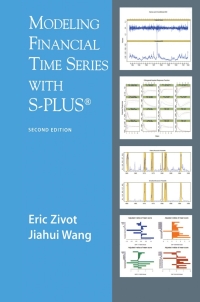Question
XYZ Co is considering a major expansion program that has been proposed by the company's information technology group. To decide whether the company will undertake
XYZ Co is considering a major expansion program that has been proposed by the company's information technology group. To decide whether the company will undertake this major expansion project, the company paid McLindsay Co., a large consulting company, a fee of $2 million to calculate the costs and benefits of the program, but they will refund half of that cost back to XYZ if the company does not move forward with the project. McLindsay reported that the expansion project will have an upfront cost of $40 million for buying fixed assets, which are depreciated straight line to zero over the four-year horizon of the project. The project requires an initial investment of $1,000,000 in working capital (assume that NWC stays the same for the first 3 years and you recover all in year 4). Mclindsay also expects that the program will generate an operating cash flow equal to $10 million the first year and will expand by 20% per year until the project is liquidated at the end of year four. The liquidation value (i.e., salvage value) from selling the equipment will be $4 million. You are an assistant to the CFO of the company and your first task is to advise XYZ whether the company should undertake the investment.The CFO has provided you with the following data, which he believes may be relevant to your task (all the market data are current).The firm's tax rate is 20%. The market data on
XYZ Co's securities are:
Debt
- Bond A: 42,750 bonds with a 5.4% coupon rate, with 20 years to maturity selling at par.
- Bond B: 55,000 bonds with a 4% coupon rate, with 15 years to maturity and a price of $980. Assume that both bonds have a par value of $1,000 and they make semiannual payments.
Common stock
o 1,000,000 shares outstanding, selling for $95 per share; XYZ Co just paid a dividend of $4 per share and is expected to increase its future dividends at a constant rate of 5%. The firm's beta is 1.8. Assume the risk-free rate is 2% and the expected market return is 8%.
Answer the following questions and show all the formulas and calculations (if using a financial calculator show all the entries).
- Find the cash flows from assets (CFFA) of the project t=0, t=1, t=2, t=3, and t=4. (4 points)
- Assuming that the project is of average risk, find the NPV and the IRR of the project. (2 points)
- Now assume that the project is riskier than the average firm project and has a beta of 2. Would you accept or reject the project? Explain (2 points)
Step by Step Solution
There are 3 Steps involved in it
Step: 1

Get Instant Access to Expert-Tailored Solutions
See step-by-step solutions with expert insights and AI powered tools for academic success
Step: 2

Step: 3

Ace Your Homework with AI
Get the answers you need in no time with our AI-driven, step-by-step assistance
Get Started


